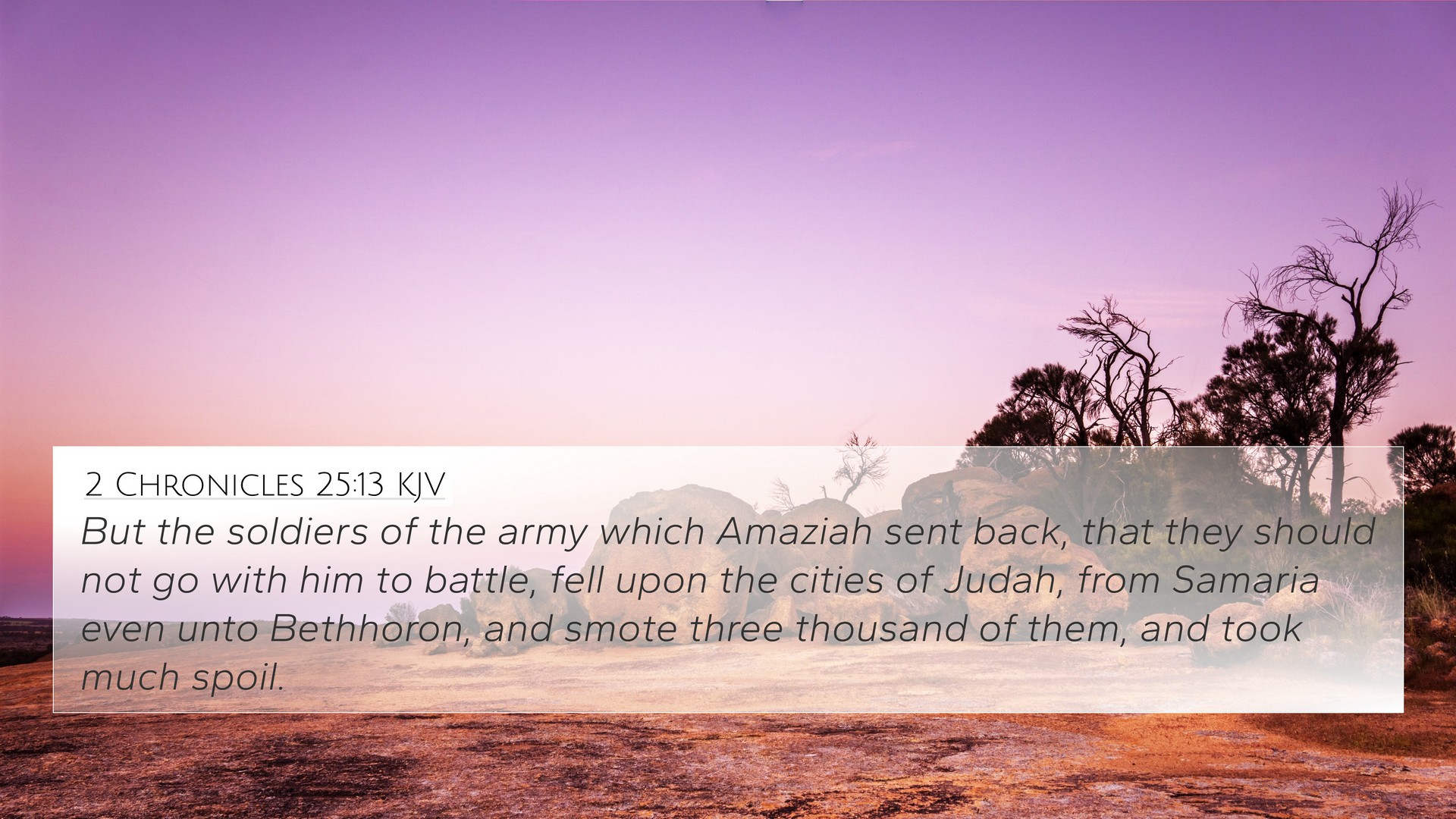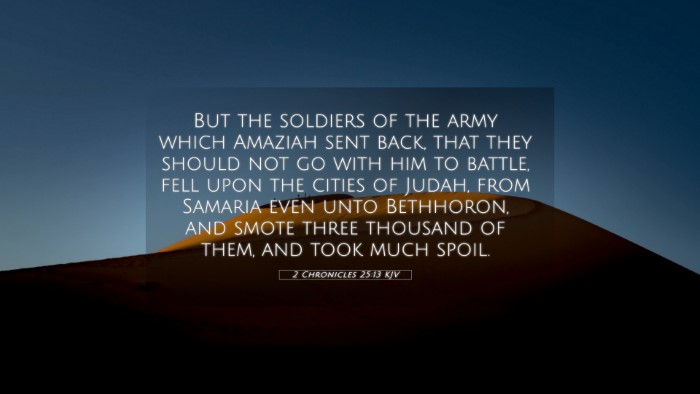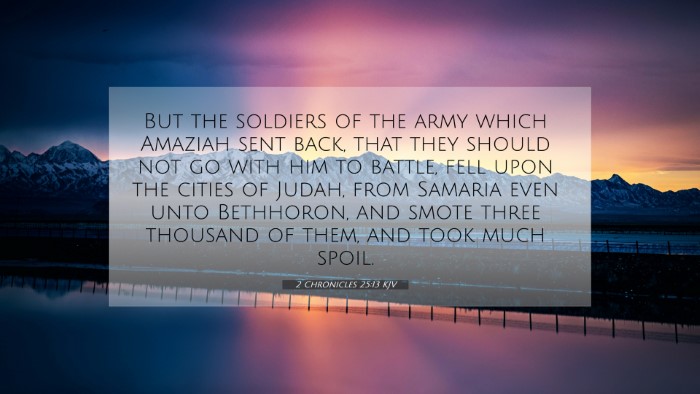Understanding 2 Chronicles 25:13
This verse reads: "But the soldiers of the army which Amaziah sent back, that they should not go with him to battle, fell upon the cities of Judah, from Samaria even unto Beth-horon, and smote three thousand of them, and took much spoil."
The context of 2 Chronicles 25 revolves around King Amaziah of Judah. He sought to enhance his military strength by hiring mercenaries from Israel. However, advised by a prophet, he dismissed them, indicating a reliance on God rather than foreign troops. Unfortunately, the dismissed soldiers retaliated, showcasing the consequences of poor decisions in leadership and an inability to trust God's provision.
Commentary Insights
Matthew Henry's Commentary
Dealing with the repercussions of dismissal: Matthew Henry emphasizes the chaotic aftermath of King Amaziah's actions. He illustrates that those who were sent back were not merely rejected soldiers but rather individuals offended and vengeful. The confrontation led to serious ramifications for Amaziah, indicating that poor judgment may invoke retaliation.
Albert Barnes' Notes on the Bible
The significance of the conflict: Barnes points out the fact that returning soldiers inflected real damage upon the cities of Judah. Their attack and the subsequent plundering demonstrated the fragility of political relations and military alliances of that time. It also suggests that when one relies on worldly resources, they may incur wrath and suffering that can affect innocent parties.
Adam Clarke's Commentary
Divine principles behind Amaziah's decisions: Clarke discusses the divine judgment that underlies the narrative. The army sent back represents not just a military contingent but also a test of faith. The resultant attack reinforces the understanding that God's favor cannot be negotiated through worldly means or through alliances with nations that do not share faith in Him.
Key Themes from 2 Chronicles 25:13
- Consequences of Poor Decision-Making: The dismissal of the soldiers leads to unintended consequences, indicating that every decision carries weight and should be made with wisdom.
- The Repercussions of Anger: The anger of the rejected soldiers showcases the human tendency to act out of spite and revenge.
- The Importance of Trusting God: Amaziah's initial dependency on foreign troops contrasts sharply with the prophet's counsel, illustrating the need for trust in divine provision.
- Retaliation and Insecurity: The response of the soldiers illustrates the nature of political and military insecurity, where decisions lead to greater conflict.
Bible Verse Cross-References
To fully understand the implications of 2 Chronicles 25:13, it is useful to consider related Bible verses, which highlight themes of judgment, responsibility, and the consequences of faith and actions:
- 2 Chronicles 25:9: The importance of reliance on God rather than military strength.
- Proverbs 16:7: When a man's ways please the Lord, he makes even his enemies to be at peace with him.
- Micah 3:5: Warning against a false reliance on leaders who lead without God's direction.
- 1 Samuel 15:22: The seriousness of obedience to God's voice compared to ritualistic sacrifice.
- Isaiah 31:1: The folly of relying on human alliances for security rather than divine support.
- Jeremiah 17:5: Cursed is the man who trusts in man and makes flesh his arm.
- Matthew 26:52: He who lives by the sword will die by the sword, illustrating the cycle of violence.
Practical Application of Cross-References
When you cross-reference biblical texts, consider the lessons and warnings that emerge from different parts of Scripture. This can help enhance understanding and provide deeper insight into God's consistent message throughout the Bible.
Tools for Bible Cross-Referencing
Utilizing a Bible concordance or a cross-reference Bible study guide can greatly assist in identifying these connections. Here are some methods:
- How to find cross-references in the Bible: Look for verses that discuss similar themes or events.
- Identifying connections between Old and New Testament: Note parallels in teachings and narratives.
- Detailed cross-reference between Gospels: Consider accounts of the same events as presented in different Gospel books for a fuller understanding.
Conclusion
2 Chronicles 25:13 serves as a critical reminder of the importance of godly counsel and the consequences of our actions. By studying this verse alongside related scriptural passages, we gain insights into the nature of human decisions, divine guidance, and the broader theological narrative that unfolds throughout the Bible. Engaging in cross-referencing Biblical texts not only enriches personal study but also fosters a deeper relationship with God through understanding His Word.






